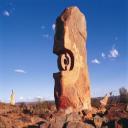Yahoo Answers is shutting down on May 4th, 2021 (Eastern Time) and beginning April 20th, 2021 (Eastern Time) the Yahoo Answers website will be in read-only mode. There will be no changes to other Yahoo properties or services, or your Yahoo account. You can find more information about the Yahoo Answers shutdown and how to download your data on this help page.
Trending News
Why don t they use the moon to observe the solar system by placing telescopes on the surface?
20 Answers
- spot aLv 75 years ago
Landing delicate telescopes on the moon would be extremely difficult. Servicing a telescope on the moon would require landing people on the moon which is very dangerous and currently not possible
The telescope would require a series of satellites to be in orbit around the moon to send instructions and receive images to and from the telescope.
The telescope would be subjected to huge temperature fluctuations from the lunar day to the lunar night.
Huge batteries would be required to power the telescope throughout the lunar night
Lunar dust is very sharp and destroys bearings and moving parts. The dust would be kicked up by micrometeorites hitting the moon
These are just a few of the problems
- QuadrillianLv 75 years ago
It is far better to have astronomical instruments in free space rather than attached to an object like the moon.
Firstly the cost is less because you don't have to drop stuff onto a hard surface and worry about it breaking from the impact. Secondly, on the moon,m the gravity will distort any engineering structures. Thirdly you have problems with highly abrasive dust and fourthly with radio telescopes you get spurious signals from reflections from the lunar surface.
Space based instrumentation is the way of the future assuming that anyone is willing to fund it in a climate of diminishing science returns.
Cheers!
- 5 years ago
It's been suggested for years; with the advent of the Hubble scope, however - it's proven that a solo satellite can be both stable and dependable, also much cheaper to get a mission to when maintenance is needed. The moon does have a black sky, but fully half the cosmic sphere is blocked by the bulk of the moon at any one time - so in that regard, Hubble (and other space telescopes) are superior.
- orpheus_swordLv 55 years ago
It's true like so many suggest that a *OPTICAL* telescope wouldn't be a great advantage from being on the Moon's surface. However, a *RADIO* telescope would have a HUGE advantage to being on the dark side of the Moon. And yes, people have proposed to do this for years… The idea is to effectively coat a crater with a wire mesh, which is equivalent to the Arecibo telescope in Puerto Rico, but would have a major advantage in terms of size and radio darkness.
- How do you think about the answers? You can sign in to vote the answer.
- Brigalow BlokeLv 75 years ago
Have you any idea of conditions on the Moon? Daytime temperatures of over 110 C and night of 240 C below zero. Bad for astronomers and bad for telescopes.
Aside from that, it is much cheaper to put telescopes in orbit and they work very well there.
Most astronomers are not very interested in the Solar System. For those that are, various probes orbiting other planets, passing by or on the surface of Mars are keeping them busy.
- ?Lv 75 years ago
It's hard to imagine a telescope that would work better on the lunar surface instead of at a Lagrange point.
One exception might be a radio telescope on the back of the Moon, to shield it from interference from Earth.
- curtisports2Lv 75 years ago
Why? The best Earth-based telescopes in use today would have their range increased by a mere quarter-million miles (on average). That's nothing, in space. The best satellite telescope there is, the Hubble, is in low-Earth orbit roughly 335 miles above us. Putting that on the moon wouldn't tell us much more than what we know now.
- ArtLv 75 years ago
Several reasons not the least of which is cost, another is field of vision which is limited on a planetary body.
The energy to rotate the telescopes would not be available as they would have to fight gravity. Much easier to place the Telescope in space.
- 5 years ago
It's more difficult to get telescopes on the moon, and easier to observe objects from orbit.
- Ronald 7Lv 75 years ago
Have you thought of the Logistics?
Getting it up there in what would be equivalent to a Saturn 5 rocket with a crew to set it up.
We are much better with a free floating Telescope like Hubble.
And what results.









